Advanced Macro Techniques in C/C++: `#`, `##`, and Variadic Macros
Advanced Macro Techniques in C/C++: #, ##, and Variadic Macros
文章目录
- Advanced Macro Techniques in C/C++: `#`, `##`, and Variadic Macros
- Illustrative Examples of Macros Using `#` and `##`
- Stringification Example
- Token Concatenation Example
- Nested Macros Example
- Key Concepts of Nested Macros
- Macro Expansion Rules
- Operators in Macro Definitions
- Challenges with `#` and `##`
- Detailed Example
- Example of Nested Macro Expansion
- Direct Expansion Example
- Why Use Nested Macros?
- Variable Argument Macros (Variadic Macros)
- Explanation
- Summary
| Date | Author | Version | Note |
|---|---|---|---|
| 2024-12-02 | Tao | V1.0 | Finish the document. |
Macros are an integral component of the C/C++ preprocessor, enabling the definition of reusable code fragments that enhance flexibility and abstraction. The # and ## operators are powerful tools used within macros for stringification and token concatenation, respectively. A deep understanding of these operators, particularly in nested contexts, allows for more sophisticated and reliable macro behavior.
The use of nested macros is a common technique in C and C++ to perform operations like token stringification or concatenation effectively through preprocessor directives. Mastering the behavior of macros when utilizing # (stringification) or ## (token concatenation) operators ensures that arguments are appropriately expanded, even when these arguments themselves involve other macro definitions.
Illustrative Examples of Macros Using # and ##
Stringification Example
#define Stringify(A) #A
printf("%s\n", Stringify(Hello)); // Output: "Hello"
Here, the # operator is used to convert the argument Hello into a string literal.
Token Concatenation Example
#define Concat(A, B) A##B
int HelloWorld = 5;
printf("%d\n", Concat(Hello, World)); // Output: 5
The ## operator concatenates Hello and World into a single token, HelloWorld.
Nested Macros Example
#define Outer(A) Inner(A)
#define Inner(A) #A
printf("%s\n", Outer(Hello)); // Output: "Hello"
By using nested macros, the argument is fully expanded before the stringification operation is applied.
Key Concepts of Nested Macros
Macro Expansion Rules
- Macros in C are expanded in a single pass unless explicitly nested within other macros.
- If a macro’s argument includes another macro, the preprocessor does not expand the inner macro unless explicitly instructed through an additional macro layer.
Operators in Macro Definitions
#: Converts a macro argument into a string literal.##: Concatenates two tokens into one.
Challenges with # and ##
When using # or ## within a macro, the preprocessor suppresses the evaluation of macro arguments before applying the operator. This suppression ensures that # or ## acts on the exact tokens provided, requiring an additional layer of macro indirection to achieve the desired behavior.
Detailed Example
Consider the following macro definitions:
#define Stringify(A) _Stringify(A) // Outer macro
#define _Stringify(A) #A // Inner macro that performs stringification#define Concat(A, B) _Concat(A, B) // Outer macro
#define _Concat(A, B) A##B // Inner macro that performs concatenation
-
Stringify Macro:
Stringify(A)passes its argumentAto_Stringify(A)._Stringify(A)then applies the#operator to convertAinto a string literal.
-
Concat Macro:
Concat(A, B)passes its argumentsAandBto_Concat(A, B)._Concat(A, B)uses the##operator to concatenateAandB.
Example of Nested Macro Expansion
Consider the following code:
printf("%s\n", Stringify(Concat(Hel, lo)));
-
Step 1: Expand
Stringify(Concat(Hel, lo)):Stringify(A)becomes_Stringify(A), whereAisConcat(Hel, lo).- Result:
_Stringify(Concat(Hel, lo)).
-
Step 2: Expand
_Stringify(Concat(Hel, lo)):- Before applying the
#operator, the macro argumentConcat(Hel, lo)is expanded because it is passed through another macro layer. Concat(Hel, lo)expands to_Concat(Hel, lo)and subsequently toHello(using the##operator).- Result:
_Stringify(Hello).
- Before applying the
-
Step 3: Apply
_Stringify(Hello):- The
#operator convertsHellointo a string literal. - Result:
"Hello".
- The
Output:
Hello
Direct Expansion Example
Consider the following code:
printf("%s\n", _Stringify(Concat(Hel, lo)));
- Step 1: Expand
_Stringify(Concat(Hel, lo)):_Stringify(A)directly applies the#operator to the argumentConcat(Hel, lo)without expanding it.- Result:
"Concat(Hel, lo)".
Output:
Concat(Hel, lo)
Why Use Nested Macros?
Nested macros ensure proper argument expansion before applying the # or ## operators. Without this nesting:
- The
#operator would stringify the literal macro argument without expanding it. - The
##operator would concatenate the original tokens rather than their expanded forms.
Variable Argument Macros (Variadic Macros)
Variadic macros allow for defining macros that accept a variable number of arguments. This feature is particularly advantageous for flexible logging or debugging macros.
Consider the following example:
#define Log(format, ...) printf(format, ##__VA_ARGS__)
Explanation
Log(format, ...)defines a macro that accepts a format string and a variable number of additional arguments.__VA_ARGS__is a special placeholder for the variable arguments.##__VA_ARGS__is used to handle the case where no additional arguments are provided, preventing a trailing comma error.
Usage Example:
Log("Error: %s, Code: %d\n", "File not found", 404); // Output: Error: File not found, Code: 404
Log("Simple message\n"); // Output: Simple message
Summary
- Utilize nested macros when dealing with macro arguments involving other macros and the
#or##operators. - The outer macro ensures arguments are fully expanded before being processed by the inner macro.
- Variadic macros (
...and__VA_ARGS__) provide the ability to create macros that accommodate a variable number of arguments, enhancing code flexibility and readability.
These examples illustrate the critical importance of proper macro usage:
- With Nested Macros:
Stringify(Concat(Hel, lo))correctly expands to"Hello". - Without Nested Macros:
_Stringify(Concat(Hel, lo))results in"Concat(Hel, lo)"due to the lack of proper expansion. - Variadic Macros: Provide a powerful mechanism for managing functions like logging without manual adjustments for the number of arguments.
相关文章:

Advanced Macro Techniques in C/C++: `#`, `##`, and Variadic Macros
Advanced Macro Techniques in C/C: #, ##, and Variadic Macros 文章目录 Advanced Macro Techniques in C/C: #, ##, and Variadic MacrosIllustrative Examples of Macros Using # and ##Stringification ExampleToken Concatenation ExampleNested Macros Example Key Conc…...

Maven、JAVAWeb、Servlet
知识点目标 1、MavenMaven是什么Maven项目的目录结构Maven的Pom文件Maven的命令Maven依赖管理Maven仓库JavaWeb项目 2.网络基础知识 3、ServletMaven Maven是什么 Maven是Java的项目管理工具,可以构建,打包,部署项目,还可以管理…...

分布式资源调度——yarn 概述(资源调度基本架构和高可用的实现)
此文章是学习笔记,图片均来源于B站:哈喽鹏程 yarn详细介绍 1、yarn 简介1.1 yarn的简介1.2 yarn 的基本架构1.3. yarn 的高可用 2、yarn 调度策略、运维、监控2.1 yarn 的调度策略2.1.1 FIFO scheduler(先进先出)2.1.2 容量调度2.1.3 公平调度 2.2 yarn…...

网页开发的http基础知识
请求方式-GET:请求参数在请求行中,没有请求体,如:/brand/findAll?nameoPPo&status1。GET请求大小在浏览器中是有限制的请求方式-POST:请求参数在请求体中,POST请求大小是没有限制的 HTTP请求…...

学习方法的进一步迭代————4
今天又在怀疑第二大脑的可靠程度 为什么呢? 还是因为自己没记住东西,感觉没学到东西。 其实自己知道大脑本就不应该用来存放知识而是用来思考知识,但是自己还是陷在里面了,我觉得其本质不是因为认知还不够,也不是因为还有点不适…...

数据科学家创建识别假图像的工具
Pixelator v2 是一款用于识别假图像的工具。它采用了全新的图像真实性技术组合,其能力超出了人眼所能看到的范围。 它能够以比传统方法更高的准确度识别图像中的细微差异,并且已被证明能够检测到小至 1 个像素的交替。 使用 SSIM 和 Pixelator v2 突出显…...

使用 GORM 与 MySQL 数据库进行交互来实现增删改查(CRUD)操作
1、安装 GORM 和 MySQL 驱动 新版本库是gorm.io/gorm go get -u gorm.io/gormgo get -u gorm.io/driver/mysql2、连接 MySQL 数据库 package mainimport ("gorm.io/driver/mysql""gorm.io/gorm""log" )func main() {// 数据源名称 (DSN) 格式&a…...

Day2 生信新手笔记: Linux基础
一、基础知识 1.1 服务器 super computer 或 server 1.2 组学数据分析 组学数据:如基因组学、转录组学、蛋白质组学等; 上游分析:主要涉及原始数据的获取和初步处理,计算量大,消耗的资源较多,在服务器完…...
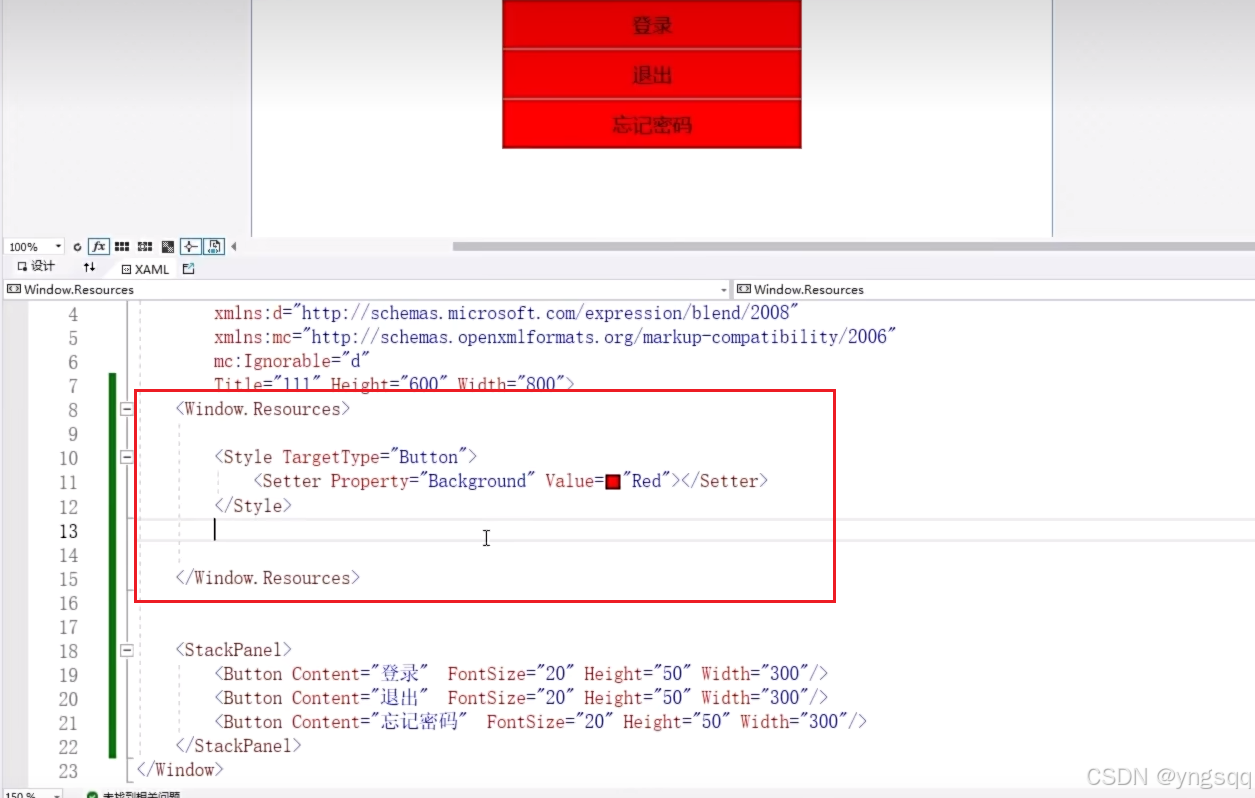
001集—— 创建一个WPF项目 ——WPF应用程序入门 C#
本例为一个WPF应用(.NET FrameWork)。 首先创建一个项目 双击xaml文件 双击xaml文件进入如下界面,开始编写代码。 效果如下: 付代码: <Window x:Class"WpfDemoFW.MainWindow"xmlns"http://schema…...

【C++】1___引用
一、基本语法 数据类型 &别名 原名 #include<iostream> using namespace std; int main(){int a 10;int &b a;cout<<"a"<<a<<endl; // a10cout<<"b"<<b<<endl;// a10b 20;cout<<"a…...

如何通过 JWT 来解决登录认证问题
1. 问题引入 在登录功能的实现中 传统思路: 登录页面时把用户名和密码提交给服务器服务器验证用户名和密码,并把检验结果返回给后端如果密码正确,则在服务器端创建 session,通过 cookie 把 session id 返回给浏览器 但是正常情…...

高效集成:将聚水潭数据导入MySQL的实战案例
聚水潭数据集成到MySQL:店铺信息查询案例分享 在数据驱动的业务环境中,如何高效、准确地实现跨平台的数据集成是每个企业面临的重要挑战。本文将聚焦于一个具体的系统对接集成案例——将聚水潭的店铺信息查询结果集成到MySQL数据库中,以供BI…...

Jenkins-基于 JNLP协议的 Java Web 启动代理
在上一篇的基础配置上进行以下步骤 工作流程: 通过 JNLP 启动代理,客户端从 Jenkins 服务器上下载一个 agent.jar 文件。该文件启动时,代理程序通过 JNLP 协议连接到 Jenkins 主节点。一旦连接成功,代理节点就可以执行从主节点分…...

Qt数据库操作-QSqlQueryModel 的使用
QSqlQueryModel 功能概述 QSqlQueryModel 是 QSqlTableModel 的父类。QSqlQueryModel 封装了执行 SELECT 语句从数据库查询数据的功能,但是 QSqlQueryModel 只能作为只读数据源使用,不可以编辑数据。QSqlQueryModel 类的主要函数如下: 接口…...

C语言编程1.21波兰国旗问题
题目描述 桌上有 n ( 1 < n < 10000 ) 面小旗,一部分是白旗,一部分是红旗(波兰国旗由白色和红色组成)。唯一允许的操作是交换两面小旗位置。请你设计一个算法,用最少的交换操作将所有的白旗都置于红旗的之前。 输入格式 第一行为一个…...

如何利用微型5G网关为智慧无人矿车提供精确定位
随着5G、AI、物联网技术的发展和普及,越来越多行业正在加快生产、运营、管理的无人化、数字化与智能化,以适应当前我国“智慧、绿色、低碳”的新型发展模式需要。其中矿产业就是典型场景之一。针对矿山场景的智慧化、无人化转型,佰马提供基于…...
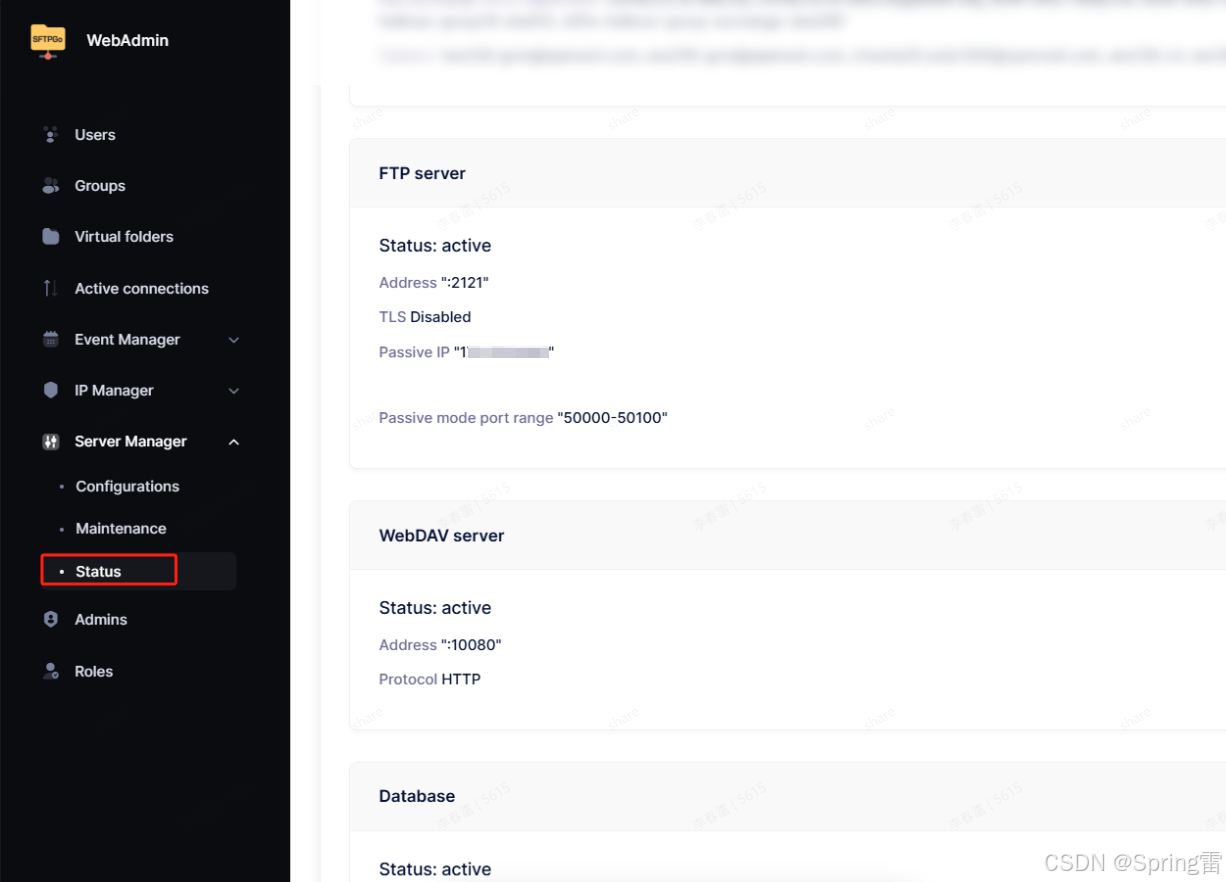
使用docker-compese部署SFTPGo详解
官网:SFTP & FTP as a Managed Service (SaaS) and On-premise 一、SFTPGo简介 SFTPGo 是一款功能强大的文件传输服务器软件。它支持多种协议(SFTP、SCP、FTP/S、WebDAV、HTTP/S)和多个存储后端。 借助 SFTPGo,您可以利用本地…...

Ajax基础总结(思维导图+二维表)
一些话 刚开始学习Ajax的时候,感觉很模糊,但是好像学什么都是这样的,很正常,但是当你学习的时候要持续性敲代码,边敲代码其实就可以理解很多了。然后在最后的总结,其实做二维表之后,就可以区分…...

Spring Task和WebSocket使用
在现代 Web 应用中,WebSocket 作为一种全双工通信协议,为实时数据传输提供了强大的支持。若要确保 WebSocket 在生产环境中的稳定性和性能,使用 Nginx 作为反向代理服务器是一个明智的选择。本篇文章将带你了解如何在 Nginx 中配置 WebSocket…...

微信小程序 本地调试和vconsole可以 但在体验上页面不请求数据
微信小程序页面不请求数据 本地调试和vconsole可以 但在体验版页面不请求数据,如遇到这类问题基本都是一样的解决办法 1、如何调试找到问题 首先要把小程序本地设置的不校验合法域名关掉,不然本地一直都是好的 然后通过本地真机调试打断点找到问题位…...
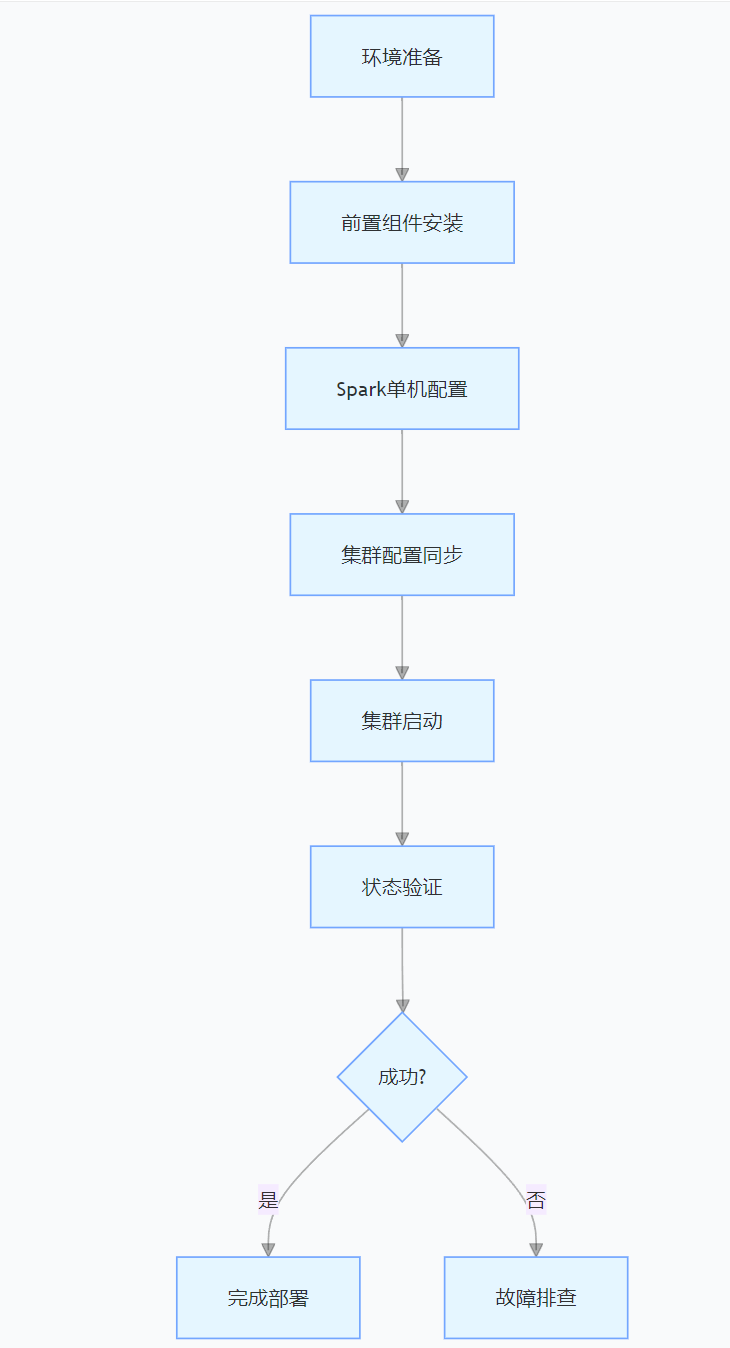
CentOS下的分布式内存计算Spark环境部署
一、Spark 核心架构与应用场景 1.1 分布式计算引擎的核心优势 Spark 是基于内存的分布式计算框架,相比 MapReduce 具有以下核心优势: 内存计算:数据可常驻内存,迭代计算性能提升 10-100 倍(文档段落:3-79…...

第 86 场周赛:矩阵中的幻方、钥匙和房间、将数组拆分成斐波那契序列、猜猜这个单词
Q1、[中等] 矩阵中的幻方 1、题目描述 3 x 3 的幻方是一个填充有 从 1 到 9 的不同数字的 3 x 3 矩阵,其中每行,每列以及两条对角线上的各数之和都相等。 给定一个由整数组成的row x col 的 grid,其中有多少个 3 3 的 “幻方” 子矩阵&am…...

Android Bitmap治理全解析:从加载优化到泄漏防控的全生命周期管理
引言 Bitmap(位图)是Android应用内存占用的“头号杀手”。一张1080P(1920x1080)的图片以ARGB_8888格式加载时,内存占用高达8MB(192010804字节)。据统计,超过60%的应用OOM崩溃与Bitm…...
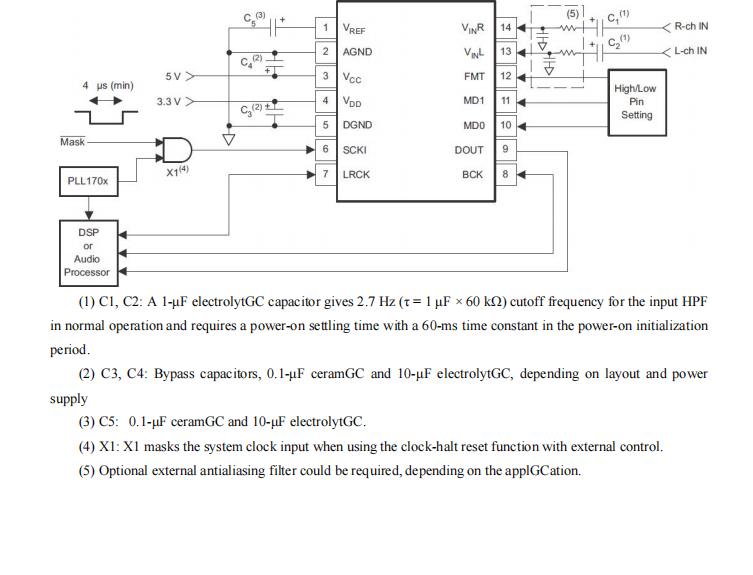
GC1808高性能24位立体声音频ADC芯片解析
1. 芯片概述 GC1808是一款24位立体声音频模数转换器(ADC),支持8kHz~96kHz采样率,集成Δ-Σ调制器、数字抗混叠滤波器和高通滤波器,适用于高保真音频采集场景。 2. 核心特性 高精度:24位分辨率,…...
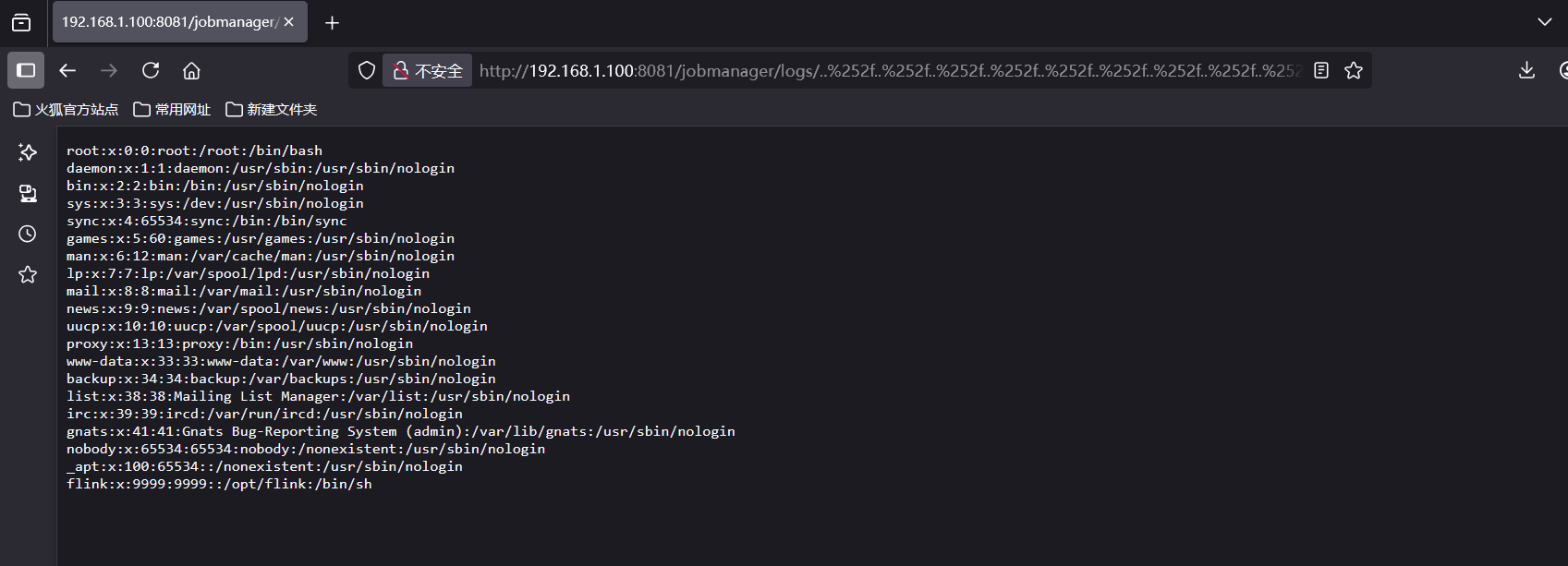
CVE-2020-17519源码分析与漏洞复现(Flink 任意文件读取)
漏洞概览 漏洞名称:Apache Flink REST API 任意文件读取漏洞CVE编号:CVE-2020-17519CVSS评分:7.5影响版本:Apache Flink 1.11.0、1.11.1、1.11.2修复版本:≥ 1.11.3 或 ≥ 1.12.0漏洞类型:路径遍历&#x…...

人工智能(大型语言模型 LLMs)对不同学科的影响以及由此产生的新学习方式
今天是关于AI如何在教学中增强学生的学习体验,我把重要信息标红了。人文学科的价值被低估了 ⬇️ 转型与必要性 人工智能正在深刻地改变教育,这并非炒作,而是已经发生的巨大变革。教育机构和教育者不能忽视它,试图简单地禁止学生使…...

【从零学习JVM|第三篇】类的生命周期(高频面试题)
前言: 在Java编程中,类的生命周期是指类从被加载到内存中开始,到被卸载出内存为止的整个过程。了解类的生命周期对于理解Java程序的运行机制以及性能优化非常重要。本文会深入探寻类的生命周期,让读者对此有深刻印象。 目录 …...

【Kafka】Kafka从入门到实战:构建高吞吐量分布式消息系统
Kafka从入门到实战:构建高吞吐量分布式消息系统 一、Kafka概述 Apache Kafka是一个分布式流处理平台,最初由LinkedIn开发,后成为Apache顶级项目。它被设计用于高吞吐量、低延迟的消息处理,能够处理来自多个生产者的海量数据,并将这些数据实时传递给消费者。 Kafka核心特…...

人工智能 - 在Dify、Coze、n8n、FastGPT和RAGFlow之间做出技术选型
在Dify、Coze、n8n、FastGPT和RAGFlow之间做出技术选型。这些平台各有侧重,适用场景差异显著。下面我将从核心功能定位、典型应用场景、真实体验痛点、选型决策关键点进行拆解,并提供具体场景下的推荐方案。 一、核心功能定位速览 平台核心定位技术栈亮…...

boost::filesystem::path文件路径使用详解和示例
boost::filesystem::path 是 Boost 库中用于跨平台操作文件路径的类,封装了路径的拼接、分割、提取、判断等常用功能。下面是对它的使用详解,包括常用接口与完整示例。 1. 引入头文件与命名空间 #include <boost/filesystem.hpp> namespace fs b…...
